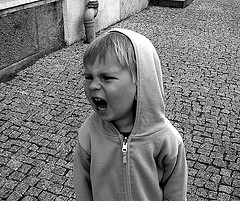 Handling angry kids could be draining, puzzling and distressing. Many of the main problems in dealing with kids’ anger are the feelings stirred often in adults. Both parents and teachers should let children feel all their feelings. Strong feelings should not be repressed and angry outbursts should not be viewed always as a sign of serious problems but should be recognized.
Handling angry kids could be draining, puzzling and distressing. Many of the main problems in dealing with kids’ anger are the feelings stirred often in adults. Both parents and teachers should let children feel all their feelings. Strong feelings should not be repressed and angry outbursts should not be viewed always as a sign of serious problems but should be recognized.
In dealing with angry children, the actions of adults should be motivated by the need to reach out and protect not to punish. Teach children ways of coping with their anger and communicate what you expect of them. Punishment is not always an effective way to teach your children what you expect of them.
It would be extremely helpful if you make known to your child what behaviors please you and respond to the positive efforts he or she is trying to do. Deliberately ignore unruly behavior that could be tolerated. This means ignoring the deed and not the child. While the behavior may be tolerated, he or she should recognize that it is not appropriate. It is also vital to provide your kids with other alternatives and physical outlets at home and at school. Use closeness and touching to curb your child’s anger. Young kids are often clamed by an adult coming close and express interest in his or her activities. Show affection since there are times when this is all what is needed for an angry child to calm down, such as a hug.